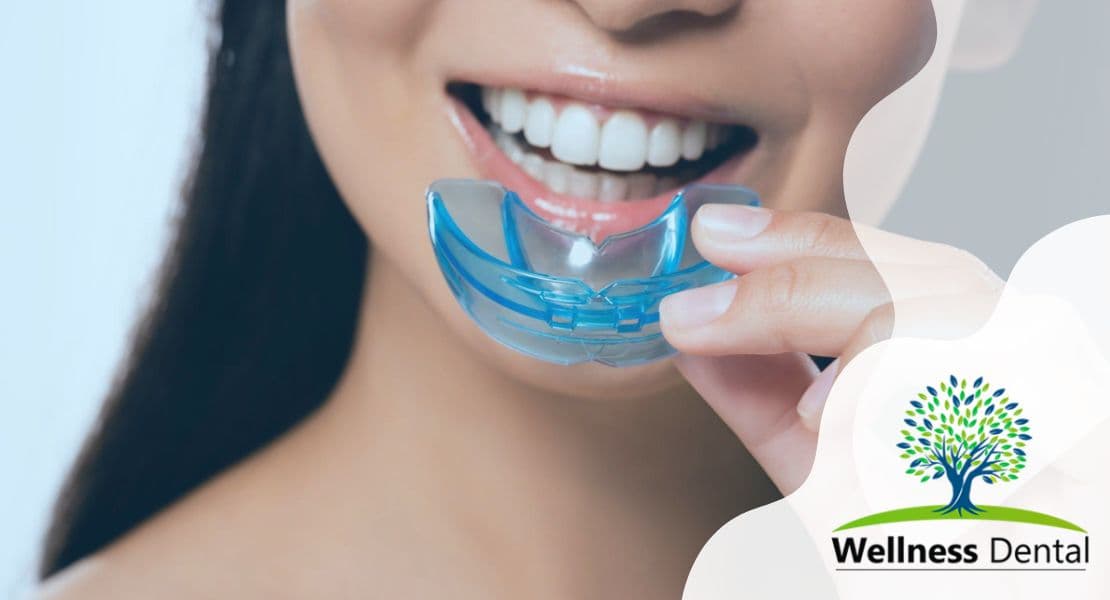When it comes to tooth replacement options, dental implants and dental bridges are two popular choices. Both have their own advantages and disadvantages, so it’s important to understand the key differences between the two.
Dental implants are considered a longer-lasting solution compared to dental bridges. Implants are surgically inserted into the jawbone, acting as artificial tooth roots. This not only provides stability but also helps in preserving existing bone and reducing the risk of future bone loss. With proper care, dental implants can last a lifetime.
On the other hand, dental bridges rely on adjacent healthy teeth for support. These false teeth are anchored to the adjacent natural teeth with the help of dental crowns. While bridges can provide an aesthetically pleasing solution, they may require replacement over time. Additionally, the support from neighboring teeth can put extra strain on them, potentially leading to tooth decay or other problems.
Another advantage of dental implants is that they closely resemble natural teeth. They provide a more realistic appearance and function compared to dental bridges and other tooth replacement options. This is due to the fact that implants are individually placed and do not rely on neighboring teeth for support.
In summary, while dental bridges can be a suitable option for replacing missing teeth, dental implants offer a longer-lasting solution, preserve existing bone, and reduce the risk of future bone loss. However, the choice between the two ultimately depends on an individual’s specific needs and circumstances. Consulting with dental professionals and considering factors such as oral health and insurance coverage will help determine the most appropriate treatment plan.
Can you please explain what a dental implant is?

A dental implant is a popular and effective tooth replacement option that provides a permanent solution for individuals with missing teeth. It is a biocompatible titanium screw that is surgically inserted into the jawbone, acting as an artificial tooth root. This screw mimics the function of a natural tooth root, providing stability and support for a permanent restoration.
The process of placing a dental implant typically involves multiple steps. First, the dentist will carefully assess the patient’s oral health and create a treatment plan tailored to their specific needs. During the implant placement procedure, the titanium screw is precisely positioned into the jawbone, where it fuses and integrates over time through a process called osseointegration. This ensures a strong and secure foundation for the artificial tooth.
After the implant is placed, there is a healing period of a few months before the permanent restoration can be added. This allows the implant to fully bond with the jawbone, ensuring its stability and long-term success. During this healing period, the patient may be provided with a temporary restoration to maintain aesthetics and functionality.
One of the key benefits of dental implants is their ability to closely resemble natural teeth. They not only look like real teeth but also feel and function like them. This is because the implant replaces the entire tooth structure, including the root. Furthermore, dental implants help maintain the integrity of the facial structure and prevent bone loss, which can occur with other tooth replacement methods.
In conclusion, a dental implant is a biocompatible titanium screw that functions as an artificial tooth root. Placed into the jawbone, it provides stability and support for a permanent restoration that closely resembles a natural tooth. With a healing period and the addition of a permanent restoration, dental implants offer a long-lasting and natural-looking solution for tooth replacement.
Dental Implant Pros and Cons
Dental implants offer several advantages when it comes to replacing missing teeth. One of the major benefits is their natural appearance. Dental implants closely resemble real teeth in terms of both their look and feel, providing patients with a seamless and natural-looking smile. Additionally, dental implants restore chewing and speaking function, allowing individuals to eat their favorite foods and speak clearly without any discomfort or difficulty.
Another advantage of dental implants is that they prevent neighboring teeth from shifting. When a tooth is lost, the adjacent teeth may start to shift into the empty space, causing misalignment and bite problems. However, dental implants fill the gap and act as a stable anchor, keeping the neighboring teeth in their correct positions.
Despite these benefits, there are a few disadvantages to consider. First, dental implants require oral surgery, which may not be suitable for everyone. Additionally, the treatment process for dental implants is typically longer compared to other tooth replacement options. It includes a healing period of several months to allow for proper osseointegration before the permanent restoration can be placed.
Moreover, there are potential risks associated with dental implant surgery, such as infection or damage to surrounding structures. It’s important for patients to discuss these risks with their dental professional before proceeding with the treatment. It’s also worth noting that dental implants can be more expensive than other tooth replacement options, and they may not be fully covered by dental insurance, leading to higher out-of-pocket costs.
Overall, dental implants offer a natural-looking smile, restore function, and prevent teeth shifting. However, potential patients should carefully consider the need for oral surgery, longer treatment time, potential risks, higher cost, and lower insurance coverage before deciding on this tooth replacement option.
Can you please explain what a dental bridge is?

A dental bridge is a dental restoration that is used to replace one or more missing teeth and “bridge” the gap in the smile. It consists of a false tooth, also known as a pontic, that is held in place by two dental crowns, known as abutments, which are placed on the adjacent healthy teeth.
The function of a dental bridge is to restore the appearance and functionality of the smile. By filling in the space left by missing teeth, bridges help to prevent the remaining teeth from shifting or collapsing into the gap. They also restore the ability to chew and speak properly, and improve the overall oral health.
The components of a dental bridge include the pontic, which is customized to match the shape, size, and color of the missing tooth, and the abutments, which are carefully prepared and shaped to support the bridge. The abutments are either the natural teeth on either side of the gap or dental implants.
It’s important to note that the placement of a dental bridge requires drilling of the adjacent healthy teeth in order to create room for the abutments. While this allows for a stable and secure fit, it does involve altering the natural teeth.
Overall, dental bridges provide a reliable and aesthetically pleasing solution for replacing missing teeth. They maintain stability in the mouth, prevent shifting, and restore a complete smile.
Dental Bridge Pros and Cons
Dental bridges offer a cost-effective and efficient solution for replacing missing teeth compared to dental implants. With a quicker process, bridges can restore the appearance and functionality of the smile in a shorter amount of time. Additionally, bridge procedures are usually covered by insurance, making them a more affordable option for many patients.
However, it is important to consider the potential drawbacks of dental bridges. One disadvantage is that bridges place strain on the surrounding structures. The adjacent healthy teeth need to be altered and drilled to create room for the abutments, which support the bridge. This alteration can put stress on these teeth and increase the risk of damage.
Another disadvantage is that dental bridges may not last a lifetime. While they can provide a durable and long-lasting solution, they typically have a lifespan of around 10 to 15 years. This means that they may need to be replaced or repaired in the future.
Additionally, dental bridges are unable to address underlying structural problems in the jawbone or gum tissues. If there is significant bone loss or gum diseases present, dental implants may be a more suitable option as they can help preserve the facial structure and oral health.
Moreover, the increased risk of cavities and tooth decay is also a consideration with dental bridges. Proper care and maintenance, including regular brushing, flossing, and dental check-ups, are crucial to prevent these issues.
Overall, while dental bridges offer many advantages such as affordability and a quicker process, they do have some limitations. It is important to consult with dental professionals and evaluate individual needs to determine the most suitable tooth replacement option.
Mixed Solutions

In cases where patients have lost multiple consecutive teeth or an entire section of their mouth, dentists often employ the concept of mixed solutions to restore their smiles. This approach combines the use of dental implants and bridges to effectively replace missing teeth and improve functionality.
To begin the process, dental implants are strategically placed at one end of the gap to provide a stable foundation for the bridge. These implants serve as artificial tooth roots, anchoring the bridge securely in place. At the other end of the gap, healthy adjacent teeth may be used for additional support, further ensuring the stability of the restoration.
By utilizing a combination of dental implants and bridges, patients can enjoy the benefits of both treatment options. Dental implants provide a permanent and durable solution for tooth replacement, while bridges effectively fill in the gap and restore the appearance of a complete smile.
It is important to note that the use of mixed solutions for consecutive tooth loss may require the alteration and drilling of healthy adjacent teeth to support the bridge. However, this approach offers a reliable and long-lasting solution that can significantly improve oral function and aesthetics.
When considering mixed solutions, it is essential to consult with a dental professional to determine the most suitable treatment plan for individual needs and ensure optimal results.
Will It Be Covered?
When considering dental implants or dental bridges as treatment options for missing teeth, it is crucial to take insurance coverage into consideration. Insurance companies often view both treatments as high-end and costly, but there are differences in how they approach coverage.
Dental bridges are more likely to be covered by insurance due to their lower cost compared to dental implants. Bridges involve the use of artificial teeth anchored by adjacent healthy teeth, which makes them a more affordable option.
On the other hand, dental implants are considered a more advanced and long-term solution for tooth replacement. These involve the placement of artificial tooth roots into the jawbone to support a replacement tooth. However, due to their higher cost, insurance coverage for dental implants may be limited and often classified as a premium procedure.
To determine coverage, it is essential to contact your insurance provider for specific details and clarifications. Understanding the extent of coverage, including any limitations or exclusions, is crucial when deciding between dental implants and bridges. This will allow you to make an informed decision, considering both your oral health needs and financial situation.
In summary, insurance coverage for dental implants and dental bridges can vary. Dental bridges are more likely to be covered due to their lower cost, while dental implants are generally seen as a premium procedure. Contacting your insurance provider to gather information on coverage before making a treatment decision is crucial to ensure you are aware of any potential costs involved.
How to choose what’s right for you
Choosing between a dental implant and a dental bridge requires careful consideration of various factors to determine which option is right for you. Convenience, cost, treatment duration, willingness for oral surgery, cleaning efforts, and preference for replacements and cost can all vary for each individual.
When weighing convenience, dental bridges may be a more suitable choice as they typically have a quicker process compared to dental implants. However, implants are a long-term solution, eliminating the need for frequent replacements that bridges may require due to wear and tear.
Cost is another important factor. Dental bridges are generally more cost-effective, making them a popular choice. On the other hand, dental implants are more expensive, but they offer superior functionality and a natural appearance, closely resembling real teeth.
Treatment duration is also worth considering. Dental bridges can be completed in a couple of weeks, while the entire process for dental implants may take several months, including the healing period after the surgery.
Your willingness for oral surgery is crucial. Dental implants require a surgical procedure to insert the artificial tooth roots into the jawbone, which can be a deciding factor for those who are apprehensive about surgery.
Cleaning efforts should also be taken into account. Dental implants can be cleaned and maintained like natural teeth, while bridges require special cleaning techniques to ensure good oral hygiene.
Ultimately, it is essential to consult with a dentist to evaluate your specific needs and discuss personalized treatment plans. They can address any concerns, answer questions, and provide recommendations tailored to your oral health and financial situation.






